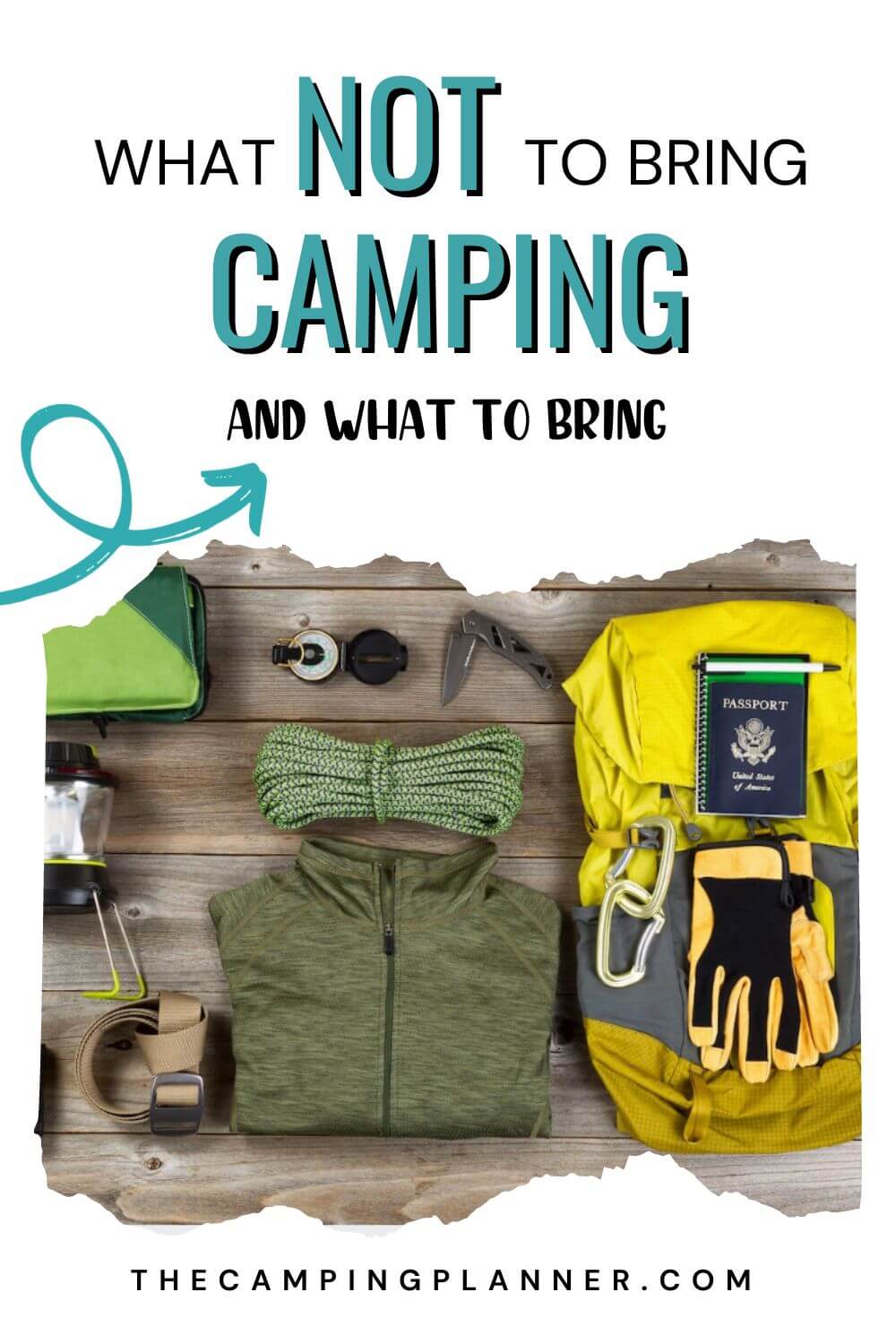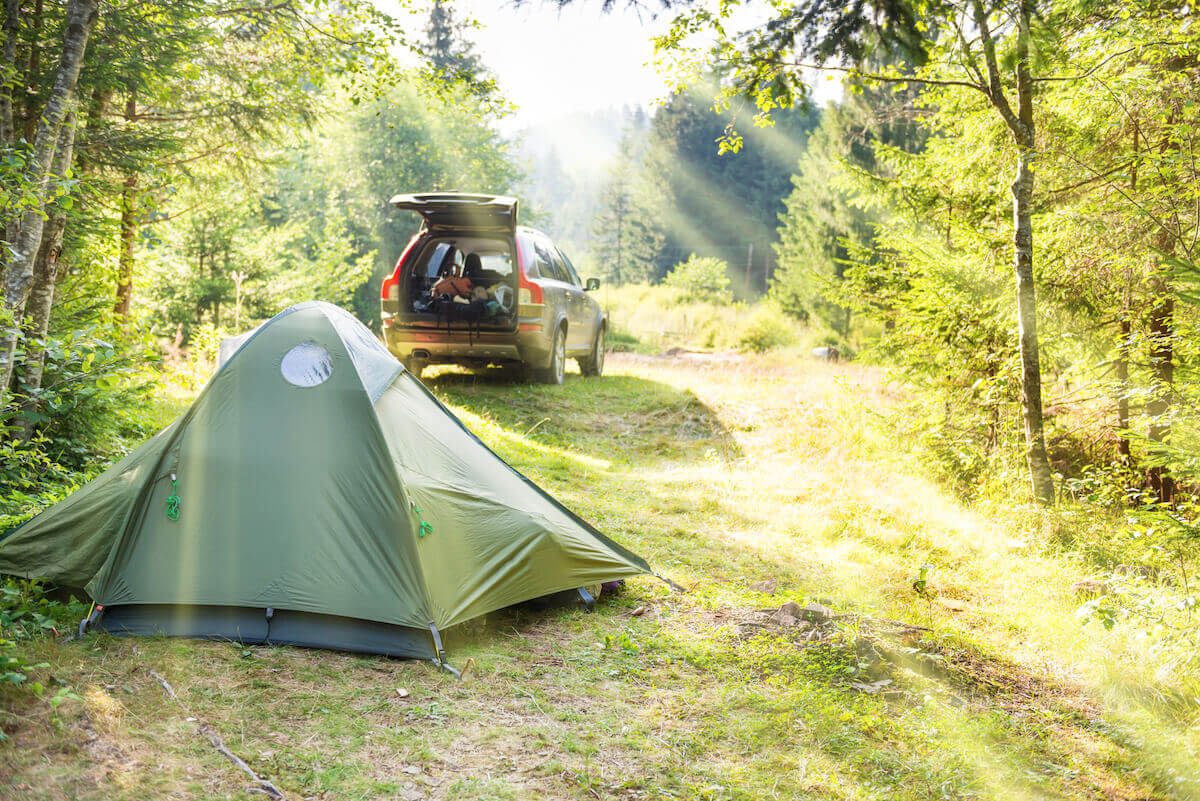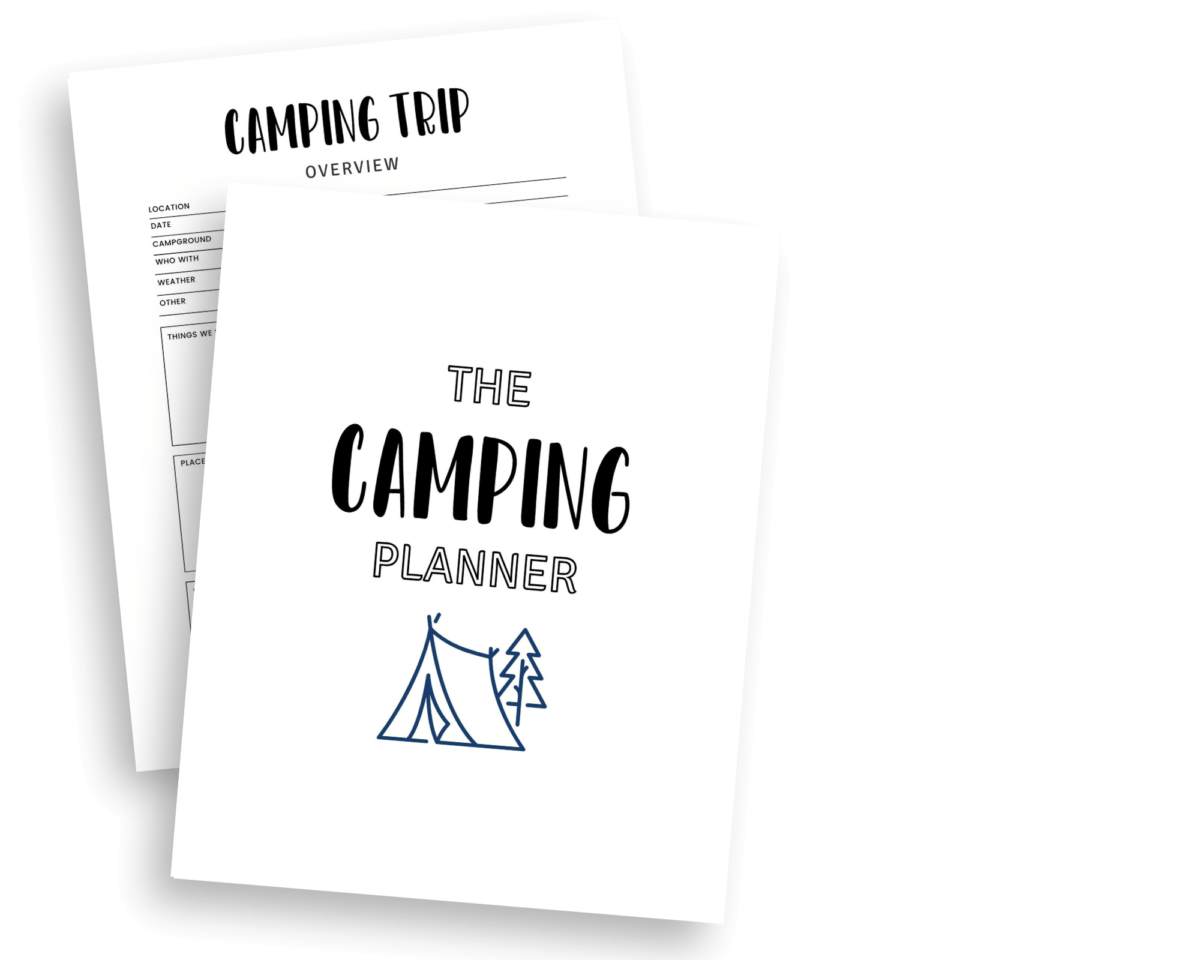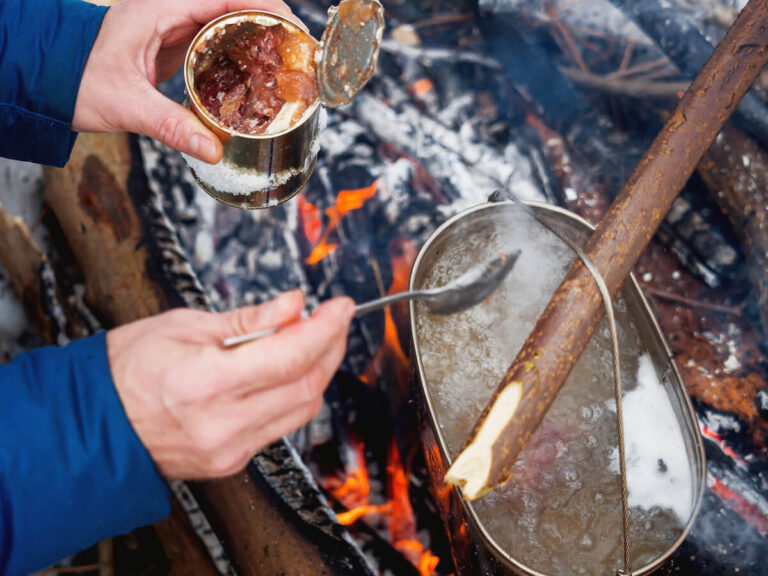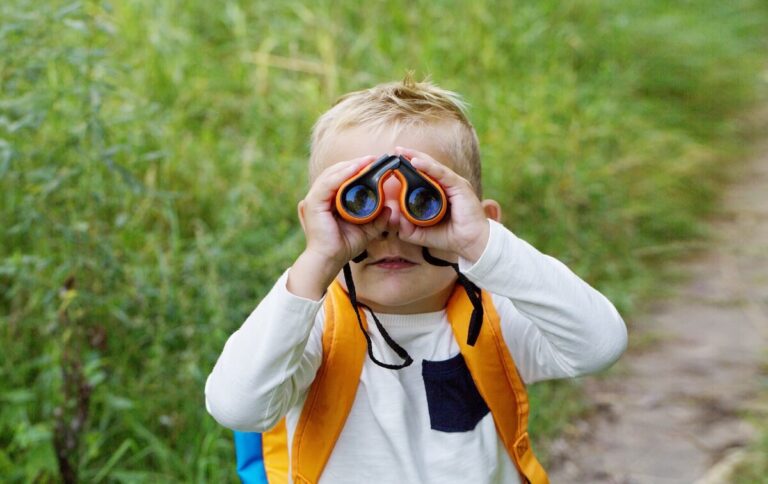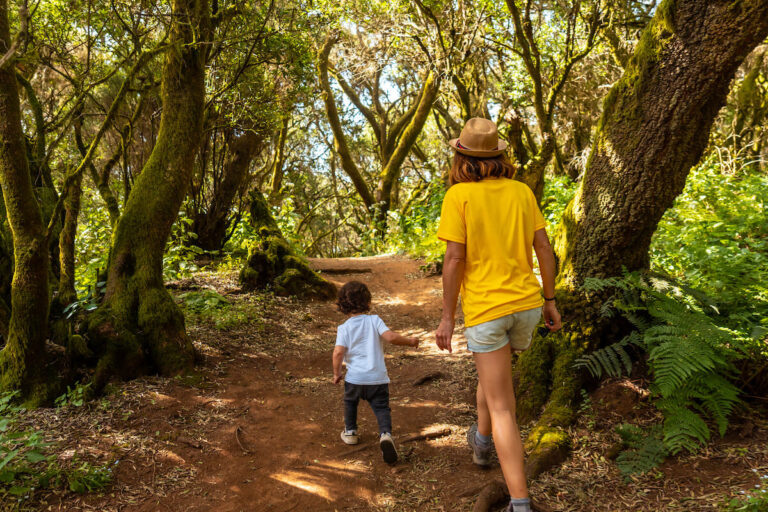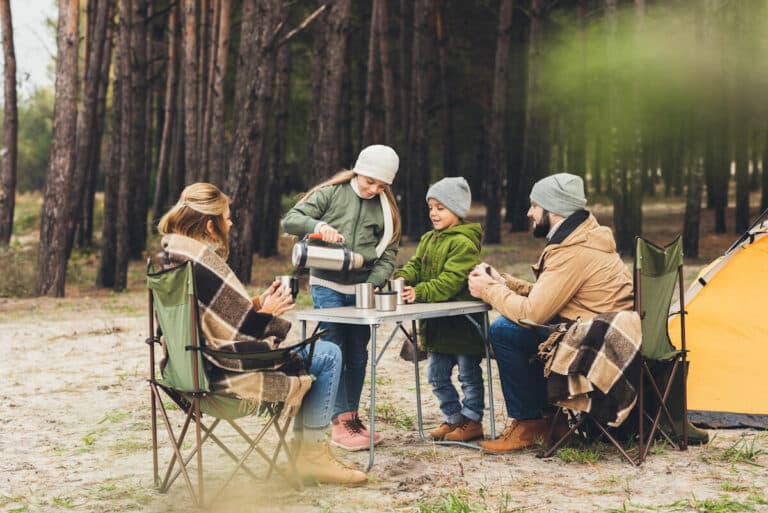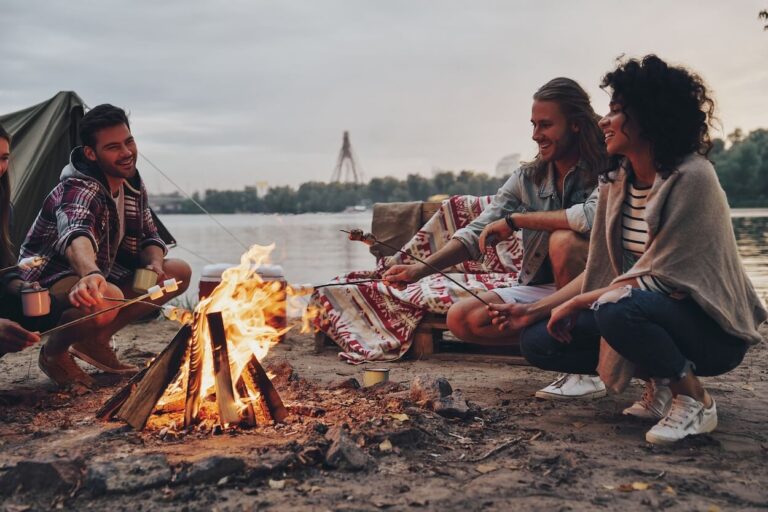What NOT To Bring Camping (And What To Bring Instead)
Are you wondering what not to bring camping? If you’re new to camping, heading on your very first camping trip, or simply want a refresher, this list of things to leave at home is for you.
There are plenty of camping essentials you don’t want to forget. But there are also quite a few items you really don’t need to bring with you.
What you pack (or more importantly, don’t pack) can make or break your experience. While most people know the essentials to bring, knowing what not to bring camping is equally important.
In this guide, we will explore these items better left at home.
What Not To Bring Camping
If you’re one of those people who likes to pack everything just in case, including the kitchen sink, this list is most definitely for you!
Being prepared is important, however, camping is about embracing the simplicity and serenity of nature, disconnecting from our daily routines, and immersing ourselves in the tranquillity of the great outdoors.
Consequently, the items we choose to pack should align with this ultimate goal.
By taking just the essentials and leaving the rest at home, we can enjoy the whole camping experience the way it is meant to be enjoyed, all while we minimise our environmental footprint.
At the very basic level, you should level valuables and anything you can’t use at the camping site at home.
This also means leaving anything dangerous at home for your next camping trip.
*This post may contain affiliate links, which means if you click a link and make a purchase, I earn a commission at no additional cost to you. Read my full privacy policy for more info.
16 Things Not To Bring Camping
Every camping trip is unique and will require different gear.
However, certain items are generally unnecessary with all camping trips (even glamping trips usually), and can even detract from your camping experience.
Plus when you avoid bringing those non-essential items, it means less packing and less space needed too. An added benefit, for sure!
Let’s delve into the unnecessary items you should leave at home when camping:
1. Valuable Jewellery & Accessories
The wilderness is no place for expensive watches, rings, or necklaces. Not only is there a risk of these items getting lost or damaged, but they can also attract unwanted attention.
Stick to simple, functional accessories that won’t cause heartache if misplaced.
While you might like to wear a watch to keep track of the time, make it one you can easily replace if it gets damaged and consider leaving all other accessories at home.
2. Glass Bottles & Ceramics
While a bottle of wine might seem like a good idea, glass bottles are heavy, take up more space and are prone to breaking.
Their shards can pose serious risks to humans and wildlife alike. Broken glass can also be a fire hazard.
Opt for cans for drinks or plastic containers for food storage instead of glass containers—they’re lighter, safer, and easier to pack up once emptied.
These plastic food storage containers are great because you can nest them when they are empty to save space.
The same goes for bringing ceramics and anything else fragile that you can switch out for lightweight alternatives that are less likely to shatter.
Take sturdy foil trays that can be used more than once, instead of ceramic baking dishes and plastic bottles instead of glass.
If your cooking oil is in a glass bottle, consider transferring this into a small plastic bottle instead, along with other condiments you have stored in glass.
3. Fragile or Bulky Electronics
Camping offers a chance to disconnect from our tech-driven lives.
Bulky electronics like laptops or gaming consoles are not only impractical to carry but also susceptible to damage from the elements.
Limit your electronics to essentials like a phone for emergencies, chargers and safety devices that are essential camping gear.
Otherwise, leave electronics safe at home and make the most of your time outdoors.
This is where having some great camping activities that everyone will enjoy will eliminate the need for screens and devices.
4. Perfumes and Strongly Scented Items
Perfumes, scented lotions, or heavily fragranced toiletries can attract wildlife, including pesky insects and potentially dangerous animals like bears.
Stick to unscented or naturally scented alternatives to avoid unwelcome visitors at your campsite.
This includes perfume, cologne, deodorants, heavily scented skin lotions, shampoos and extra toiletries you don’t really need to pack.
5. Any Prohibited Items
Different campsites have different rules and regulations, and it’s crucial to respect them or risk getting kicked out.
Or worse – getting fined!
Some sites may prohibit items like alcohol, fireworks, noisy sound systems or activities, or specific cooking equipment.
Always check the campsite’s regulations before you go so you don’t need to worry about your camping trip being cut short!
6. Loud Speakers
While some tunes around the campfire might seem appealing, remember that noise travels far in open spaces.
Your playlist might not be appreciated by fellow campers seeking peace and quiet.
Enjoy the natural sounds of the wilderness instead or keep the music to a very low level so it’s only really your group who can hear it.
Conversation around the campfire is a far greater sound anyway!
7. Fancy Clothing or Shoes
Camping is not a fashion runway. Leave your designer clothes and fancy shoes at home.
They’re impractical for outdoor activities and could get ruined easily.
Opt for durable, comfortable clothing and sturdy shoes suitable for the terrain and weather conditions. High heels and designer jackets certainly don’t belong on your camping gear list.
8. Full-Size Toiletries
Full-size toiletries can at much more extra weight and take up valuable space.
Opt for travel-sized versions for shampoo, conditioner, moisturisers and other essentials, or transfer your products into smaller, reusable containers.
Choose biodegradable products wherever possible to minimize your impact on the environment.
9. Unleashed Or Unattended Pets
If you plan to bring your pet, ensure they are well-behaved and can obey commands.
Never leave pets unattended. And always keep them leashed, unless in a designated off-leash area.
This ensures their safety, respects other campers and protects wildlife.
Also, make sure you’re only taking pets with you to approved campgrounds.
Most National Parks do not allow domestic animals at their campground, because of the risk to nature and wildlife.
10. Disposable Plates & Utensils
Disposable plates and utensils might seem convenient, but they generate a significant amount of waste.
Opt for reusable camping dishes and utensils instead of single-use plastics. They’re more environmentally friendly and can easily be cleaned and reused.
This way you’re not lugging home trash bags full of rubbish. And there’s far less risk of leaving trash at your campsite.
11. Accelerants
While accelerants like lighter fluid might seem like a quick way to start a fire, they can be dangerous and are often unnecessary.
Learning to start a fire safely and naturally is a valuable camping skill and far safer. You don’t want your camping trip to end up with a medical emergency or a bushfire!
Any unnecessary chemicals should definitely be left behind when you go camping!
12. An Axe or Saw
Chopping down trees or branches is typically prohibited at campsites to preserve the natural environment, so you can generally leave this behind for your upcoming camping trip.
Bring firewood from home or gather fallen wood if allowed. Always check the regulations of your campsite.
13. Electric Heaters
Electric heaters can pose a fire risk and are generally not suitable for tent camping due to the extreme safety risk.
Instead, dress warmly with base layers, bring appropriate sleeping gear including the right sleeping bags for the climate, and rely on a safe campfire for heat.
14. Tobacco or Any Smoking Materials
Smoking poses a fire risk, leaves lingering smells, and cigarette butts are harmful to the environment.
If you must smoke, do so responsibly, dispose of cigarette butts properly, and respect those around you.
15. Excessive Food
Overpacking food can lead to unnecessary waste. Especially if a lot of that is perishable food!
Plan your meals carefully, consider non-perishables, and remember any dietary requirements you need to cater to when packing food and planning meals too.
Make sure you do bring enough food. Just don’t go overboard!
16. Lots Of Toys
If you’re camping with kids or toddlers, and you need a way to keep the kids entertained, a few camping toys are good to bring when camping, to ensure they have something quiet to do while you’re cooking or resting yourself.
However, you don’t need to bring a load of toys with you!
Stick with a couple of items that they get a lot of enjoyment with. Avoid the noisy toys though.
And don’t bring electronics that could get ruined.
Conclusion: Things You Shouldn’t Take Camping
Camping is about simplicity, respect for nature, and a chance to spend time with the people we value. By leaving these items at home, you contribute to a safer, cleaner, and more enjoyable camping experience for everyone. Remember, the goal of camping is to leave no trace, preserving the beauty of the outdoors for future generations to enjoy.
Here’s to happy, responsible camping!
